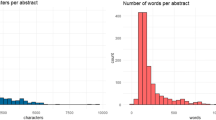Abstract
According to the tradition of ‘natural law’ justice is inherent to, and should always be observed in, all interpersonal relations: the science of natural law is nothing more or less than the expression of such principles of justice. The theoretical peculiarities that crop up regarding the lawfulness of appropriation are determined by the indirect interpersonal relations that take place within the process of appropriation: though appropriation is an action directed not towards another person or his property, but towards tangible external goods, this action may have important consequences for other people. Therefore Locke's theory of appropriation is a theory of justice.
Locke's solution is made possible by the methodological improvement which allows a clear separation between the natural law and the historical and empirical conditions of its application: this improvement is a consequence of the distinction between modes and substances established in Locke's Essay.
Locke's theory can be considered an extensive re-elaboration, in polemic against Filmer, of the anti-monopolistic principle characteristic of the whole of Scholastic social thought: this principle is intimately connected with the principle of man's natural liberty.
Locke maintains a negative and formal conception of justice: justice prohibits interference with others' liberty of appropriation. Alongside the justice is the positive and conditional obligation of charity which prescribes the transfer of some of one's own goods to others who need them in order to survive. But for Locke there are precise limits on the obligation of charity: the application of charity suspends the application of justice only when the immediate physical survival is at stake; in all other cases justice leaves no room for charity.
The Lockian negative conception of justice, which allows unlimited liberty of appropriation, is dependent on the empirical and historical condition of the incommensurability of the main resource. The widespread use of money acts as an accelerating element in the process of exhaustion of the incommensurability of land-resources but, at the same time, it renders self-preservation and appropriation almost completely independent of the natural environment. Money creates an infinite number of opportunities for the outlay of labour irrespective of the availability of land, that is, it renders labour the principal resource of the ‘civilized’ world, and labour is an incommensurable and infinitely reproducible resource. The incommensurability of the labour resource thus supports the Lockian theory of negative distributive justice; but over the Lockian solution already loomed the threatening shadow of pauperism.
Similar content being viewed by others
Author information
Authors and Affiliations
Additional information
The subject of this essay is further dealt with in my book on Locke's political and social philosophy Nel crepuscolo della probabilitá, Bibliopolis, Napoli, 1983. There I develop further the interpretation of Locke's theory of justice presented here and analyse his theoretical and historical presuppositions.
Rights and permissions
About this article
Cite this article
Fagiani, F. Natural law and history in Locke's theory of distributive justice. Topoi 2, 163–185 (1983). https://doi.org/10.1007/BF00142490
Issue Date:
DOI: https://doi.org/10.1007/BF00142490




